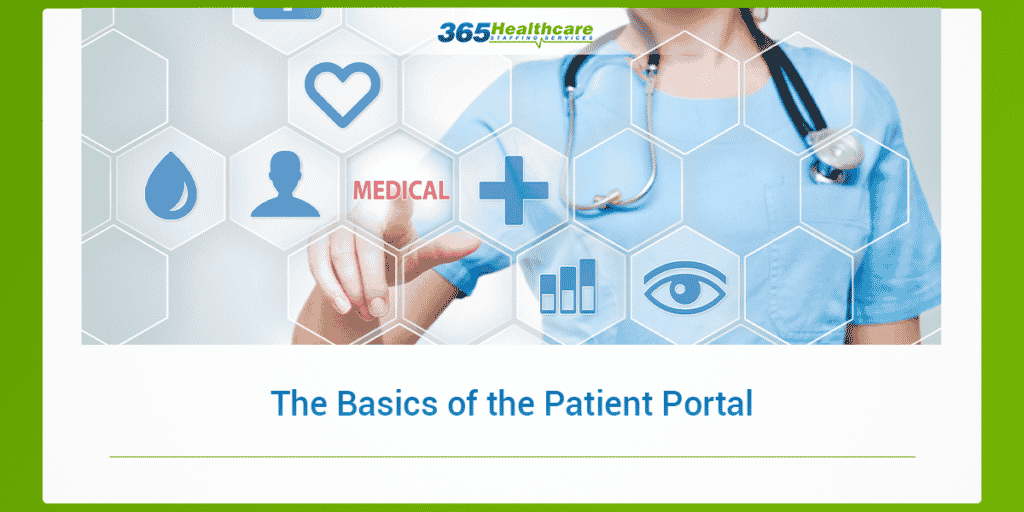A portal is a type of entrance or opening. Along the same lines, a patient portal is an entrance to a doctor’s virtual office. Although each patient portal is unique, most have certain basic elements in common.
The Basics
In order to use a patient portal, an individual must register on the site. Portals require a username and password, and the patient will use them to sign in to the portal. Patient portals are designed to be very secure, and it is important for an individual who has signed up for the portal to preserve the confidentiality of the username and password.
Patient portals can be used for a variety of purposes, including
- information about recent doctor visits
- summaries of discharge information
- medications
- immunizations
- allergies
- lab and test results
However, there is one thing that patient portals should never be used for: emergencies. As one practice explains about its portal, “The … Patient Portal is for non-urgent issues only. If you are experiencing an urgent medical issue or need a same-day appointment, please call…. If it is an emergency, dial 911.”
What Are the Advantages?
With portals, patients can receive bloodwork and other lab results before an appointment. In How Patient Portals Are Changing Health Care, U.S. News & World Report explains, “portals allow patients and doctors to be on the same page when it comes to patients’ medical information.” Information from the past can be useful, too: “Having information archived electronically also allows both patients and doctors to review old information that could be clinically relevant.”
Ease and speed of communication is another important advantage, according to the U.S. News & World Report article. “Communicating through portals can save nurses and receptionists time, too, since the messages pop up in real time on their computer screens.” In addition, the portals will bring doctors closer to their distant patients. “[And] that’s important in a largely rural state like Montana – where some of [family practice physician Dr. James] Legan’s patients live a couple hours away.”
Involve the Patient
Does this make a difference? The answer is yes, according to Consumer Reports’ The doctor will e-mail you now. “Managing chronic diseases such as diabetes, high blood pressure, asthma, and congestive heart failure is easier when doctors and patients have access to the same data.” Furthermore, “Another study, by Kaiser Permanente researchers, found that patients with diabetes who e-mailed their doctors received better care compared with those who didn’t.”
How About You?
Patient portals have the potential to improve patient care. If you are interested in improving patient care, too, we can help. At 365 Healthcare Staffing, we place healthcare professionals, and we’d like to work with you. Give us a call at 310.436.3650 today!


